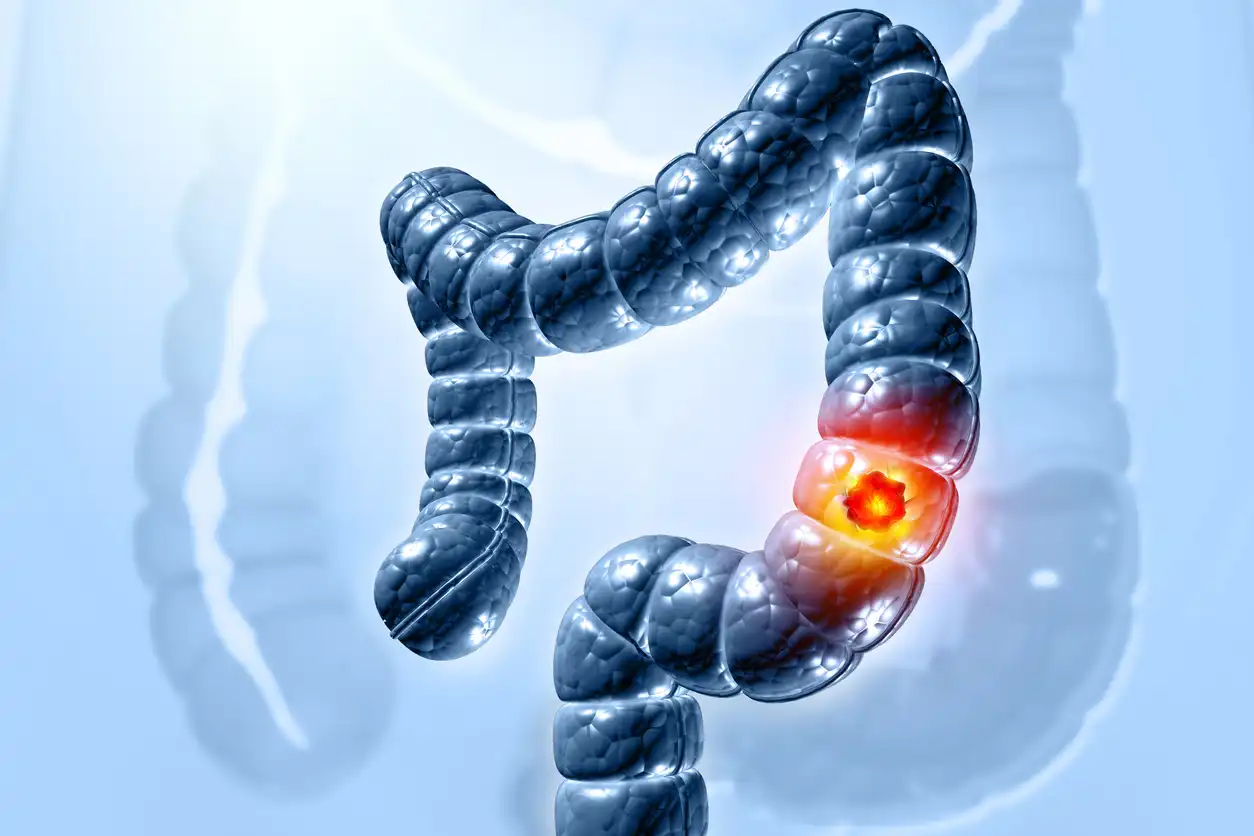Among the most common killers of cancer throughout the world, colon cancer stands as one. It usually develops as small harmless polyps that, over exceedingly incredibly long time frames, grow malignant. Colon cancer develops over a very, very long time frame, coming to the more advanced stages of development when matured and possibly deadly to life.
What Early Signs of Colon Cancer Should I Watch For?
If detected early on, colon cancer can be stopped. A healthy examination and cancer-averting regimen for the region of the colorectal avoids the risk factors of people to a reasonable extent to become infected with the disease. Familiarity with a malady—about its warning signs and how to prevent it—makes you immune to its effect.
Colon cancer starts with the growth of abnormal cells in its lining. The cells grow into polyps, which are harmless for years before turning into cancer. There is a ten-year window for the polyp to develop into a malignant tumor, and there is enough time to detect it by screening.
Common Symptoms You Shouldn’t Ignore
Colon cancer is asymptomatic in its early stages. But once the condition is advanced, colon cancer symptons become prominent.
The most common sign is a longstanding change of bowel habit with constipation, diarrhea, or more loose stools. Rectal bleeding in the form of red or black stools is noted in most patients. Weight loss, cramps in the abdomen, and chronic fatigue for weeks may be signs of colon cancer.
If one has these symptoms for a few weeks, then the individual must go and see a doctor. The earlier diagnosis will raise the survival and colon cancer treatment center chances.

Who Is at Risk for Colon Cancer?
Age is also among the causative factors for colon cancer. Colon cancer would usually manifest itself in individuals over the age of 50 years, but of late there has been an unexpected rate of incidents in adults as well. Diet, lifestyle, and environment would have been the probable reason behind the trend up to the time the study came.
How Do Genetics and Family History Enter the Equation?
Family history of colon cancer makes the individual more likely to develop the disease. If family members or parents have already developed the disease, the individual becomes very likely to develop it. Some genetic illnesses like Lynch syndrome lead to the virtual certainty of the development of colon cancer at middle age. Familial adenomatous polyposis (FAP) is another genetic condition that also occurs in young people with many polyps. These two syndromes are responsible for most cases of early colon cancer.
For family history patients, doctors usually order more regular and earlier testing to detect any possible issue before it becomes a full-fledged problem.
Lifestyle Factors That Increase the Risk
Colon cancer does not necessarily have to be inherited, but causation also comes in the line of lifestyle. More red meat consumption along with decreased intake of fibers has also been proven to heighten risk. Various causes have also come with obesity, smoking cigarettes, along with reduced activity. Alcoholism has also turned out to be a cause of colonic cell damage.
Prevention of colon cancer by lifestyles would be effective enough to minimize risk to a colon cancer to a large extent.
How Do You Prevent Colon Cancer?
Water is necessary. Drinking water throughout the day aids digestion as well as purges toxins from the body. Such dietary changes remove colon cancer risk by a high percentage—from 40% to 80%, according to the study.
Whether You Should be Screened for Colon Cancer?
Preventive screening of colorectal cancer is necessary to identify the disease prior to its occurrence and prevents it. Physicians advise the patients to begin screening at 45 years of age, and even earlier for individuals with or family history of colon cancer.
The ideal test is a colonoscopy. It allows doctors to visualize the colon and remove polyps before cancer forms. Other tests, such as stool tests for hidden blood or genetic alterations, also detect possible issues early.
Screening at the appropriate time will keep colon cancer from happening or spreading.
Is Physical Activity Reduced Risk?
Indeed, a lower risk of colon cancer has been associated with physical exercise. Why? Because the gut is kept healthy when one maintains a regimen of simple, pleasurable physical activities that stimulate one’s metabolism and, beyond that, prevent inflammation.
And really, “exercise” can be as simple as walking, cycling, or even stretching for half an hour a day.
Maintaining one’s weight is also an endeavor that reduces cancer risk. In research, obesity is a marker of increased risks of colon cancer than any other weight, and weight control becomes an essential element in the prevention plan.
How Do You Improve Gut Health?
A healthy colon is healthy for general health and also against colon cancer. Probiotics in yogurt, kimchi, and kefir are good for friendly gut bacteria. Excess fiber in the form of consuming fruits and vegetables helps digestion and normal bowel movement.

What Is the Treatment of Colon Cancer?
If the screening test shows abnormal test results, additional testing in the guise of biopsies, CT scans, or MRIs will be required to come to a diagnosis. Treatment and survival chances are enhanced by early detection of cancer.
What are the Main Treatment Options?
Colon cancer is treated depending upon where the tumor is and how big it is. The first colon cancer treatment is surgery, typically, for early stage tumors. Surgery is removing the tumor-causing part of the colon without removing healthy tissue.
In the most severe cases, chemotherapy colon cancer treatment or radiation is necessary. Chemotherapy consists of using drugs to annihilate the cancer cells, while radiation therapy shrinks the tumors in preparation for surgical removal. Targeted therapy is an even more advanced technique, with the cancer cells as its exclusive target. This therapy aims to kill cancer cells with minimal injury to the nearby healthy cancer-containing tissue.
The doctor designs a personalized treatment plan for every patient. These plans are individualized to the patient’s medical history and current state. The effectiveness of the treatments listed above is most significant when the doctor catches the problem early on.. The effectiveness of the above therapies is maximized when diagnoses are made early. The effectiveness of the treatments discussed earlier is maximized when diagnoses are made early.
Is Colon Cancer Treatable?
Indeed, colon cancer can be treated very well if detected early.In non-metastatic colon cancer, five-year survival is more than 90%, and it is this that necessitates a earlier screening. Even after the cancer has spread, treatment has come a long, long way, and by leaps and bounds at that.
Exercise regularly, regular follow-up, and dietary changes are crucial determinants in the prevention and control of colon cancer best treatment centers.
Conclusion
Colon cancer is deadly but can also be prevented. You can significantly lower your odds with some simple methods like eating fruits and vegetables, exercising regularly and skipping periodic screenings. If you’re at high risk due to genetics or apparent symptoms, don’t mess around—make an appointment without delay. Your chances of living through this increase dramatically with early detection.


